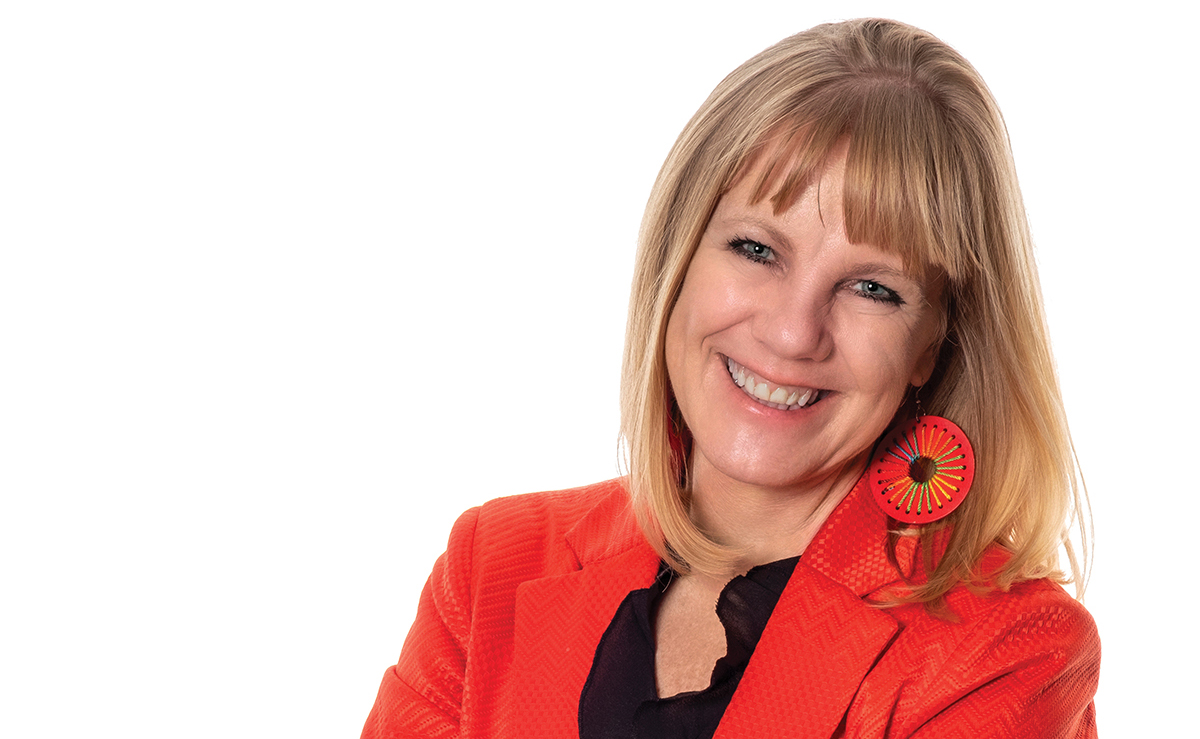A champion of the world’s newborns

Joy Lawn’s connection with newborn survival is personal. She was almost a newborn casualty when her mother had an emergency cesarean delivery in a remote bush hospital in northern Uganda and was saved by a medic who had done surgery before but not a cesarean.
“From an early age, I was motivated by social justice issues,” Lawn says. “Living in Uganda until I was a teenager had a lasting effect, despite close experiences with President Idi Amin, and then moving to Belfast during the Troubles.”
Lawn 00MPH is now director of the Maternal, Adolescent, Reproductive, & Child Health (MARCH) Centre at the London School of Hygiene & Tropical Medicine and one of the world’s leading experts on global perinatal data and evidence. She was responsible for the United Nation’s first authoritative national and global estimates on many major perinatal outcomes—2 million stillbirths, 2.5 million neonatal deaths, and other relevant measurements. She has led several Lancet series, one of which catalyzed the first SDG (sustainable development goal) on neonatal survival.
Though she has traveled far, she never left her African roots behind. Lawn chose a medical school in Nottingham, UK, where she could complete an intercalated degree in epidemiology in western Kenya studying the experience of pregnant women.
After her medical degree, she trained in pediatrics and neonatal health, intentionally gathering those special skills to return to African countries. She met and married a fellow medic who specialized in TB and AIDs.
Spurred by the desire to enable African-led change within African learning communities, Lawn chose to teach and practice at a large hospital and medical school in Ghana on a local wage rather than sign on with a more prestigious, white-led research institution. “The experience was very formative,” Lawn says. “We daily saw newborn babies who were dying who shouldn’t have died. At that stage there were no global numbers of newborn deaths, almost no WHO guidelines mentioning newborns, and it was impossible to get any funding.”
In 1997, Lawn and her family moved to Atlanta, where she was a fellow at the Centers for Disease Control and Prevention’s (CDC) WHO Center in Perinatal Care and Health Services Research while she earned an MPH in global health.
“Very early on I met several heroes of global health at Rollins, including Deb McFarland, Stan Foster, and Bill Foege,” says Lawn. “These mentors and the classes I took really shaped me. I was incredibly fortunate to receive the Woodruff scholarship. I would have never been able to afford that master’s degree without it.”
She recalls a highlight from her experience as a Rollins student. “Bill Foege ran a small class of about 12 students on global health leadership, and it truly inspired me both to believe you can make change, but also seeing a pathway to make it,” Lawn says. “Even years later, I still process things I learned from him. He was incredibly humble, yet so insightful of global health architecture and politics.”
Lawn’s time at Emory and the CDC was a turning point in her career. Her newfound skills helped her to better generate the global data needed, design large-scale research, and navigate policy change within national and global health structures.
“Something can be a big problem, with a huge number of deaths, but change on the global agenda is also influenced by framing it in a way that is personal and actionable,” Lawn explains.
Most of the global evidence for newborn health care at that time focused on high-income countries, in intensive care units with expensive equipment. At that point 60 million of the world’s births were still at home in Africa or South Asia and saving such lives was considered too hard.
“Getting the evidence and making a case for community-based interventions was a critical shift then. Now 20 years later, we are making another big shift,” says Lawn. “Now, we are able to transform hospital systems in low-income countries for newborn care with a bundle of innovative devices and large-scale programs such as NEST360, an international alliance aimed at ending preventable newborn deaths in African hospitals.”
Lawn was honored to receive Emory’s Sheth Distinguished International Alumni Award in 2015.
Lawn was humbled by the award and the experience. “I was overwhelmed when they gave me a standing ovation,” she says.
It was well deserved.




